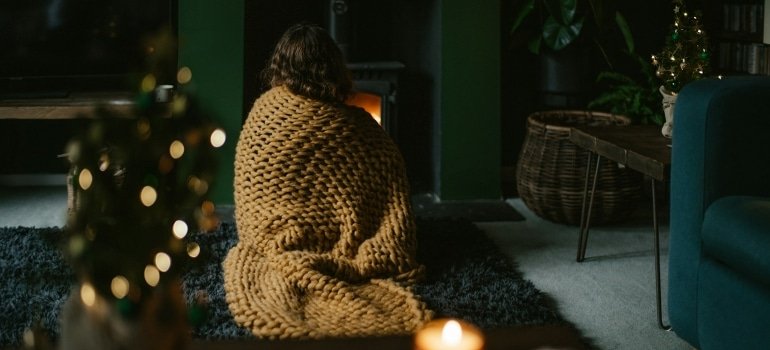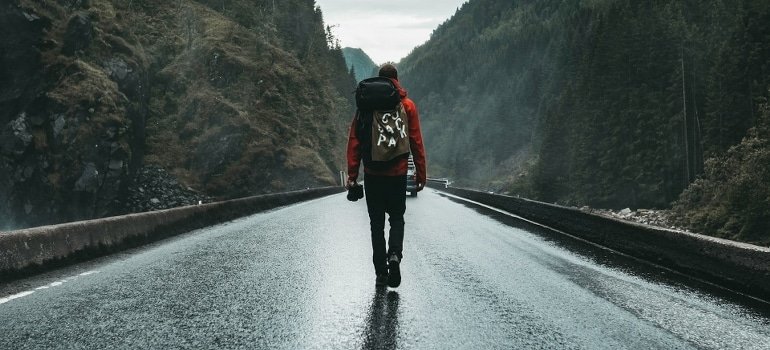How to Stay Sane During the Long Winter Nights in Norway?

Get a Free Moving Quote Now!
Start Your International Moving Journey





Moving to Norway comes with views, safety, and a unique pace of life—but winter is the real adjustment. For many new arrivals, the first season of endless nights can feel disorienting. If you’re coming from a sunnier place, it helps to get ahead of it mentally. The good news? Locals know how to handle it, and you can learn too. Many international movers see clients leave Norway in spring only to return once they miss the balance it offers. So if you want to stay sane during the long winter nights in Norway, here’s what actually works—no fluff, no guesswork.
How Does Light Therapy Actually Help?
Lack of daylight isn’t just annoying—it changes how your brain works. After just a few weeks with dim light, your melatonin levels spike, serotonin drops, and you may feel slow, irritable, or numb. Shipping household goods from sunnier countries won’t bring you the light your body craves, but a light therapy lamp can. These mimic morning light and help your brain wake up properly, especially if you sit in front of one within 30 minutes of waking.

A 10,000 lux lamp is the standard. Many people combine it with daily vitamin D supplements, which Norwegians commonly take. It’s easy to find D3 pills in any pharmacy, and most expats report better energy and fewer mood swings after consistent use. Seasonal Affective Disorder (SAD) hits hardest in November and February, so don’t wait for the darkness to take hold before preparing. Use the tools now so you don’t have to fight through the crash later.
Can Routines Really Change Your Winter Mood?
Your body clock wants structure, but winter light doesn’t give you that. So, you need to take control of your rhythm. Professional international moving services often assist clients in transitioning from fast-paced cities, where daylight and activity abound, to Norway’s more relaxed and quieter rhythm. The key to staying alert is acting like it’s sunny even when it’s not. Wake up at the same time daily. Keep the lights bright indoors in the morning. Plan your meals, workouts, and work blocks in advance.
Go outside during the few hours of daylight, even if it’s cloudy. Movement, even light walking, sends signals to your brain that the day has started. The more structured your day, the less you’ll slip into the fog of sleepiness and low motivation. You’re not lazy—you’re light-starved. But routines give your brain something steady to hold onto. Even simple morning rituals like warm tea and stretching can make a difference. Add meaning to your week, and the long nights won’t feel like a void.
What Makes ‘Koselig’ More Than Just Cozy?
When Norwegians talk about koselig, they don’t mean cute blankets. It’s a mindset—a deliberate embrace of calm, comfort, and slowing down. Newcomers are often surprised at how locals prepare for winter emotionally. Some clients expect to handle winter the same way they tackle work stress or summer heat—but life in Norway encourages slowing down rather than resisting. Candles aren’t just decorative; they’re a gentle reminder that it’s okay to relax.

Dim lights, wool socks, and a hot drink aren’t luxuries—they’re tools to reclaim peace when the outside world is cold and dark. You’ll find people gathering inside with low lighting, low expectations, and no rush. That slows your nervous system down in the best way. Learn to enjoy it. Read more. Cook more. Don’t fill every moment with tasks. The darkness outside can be balanced by the warmth inside, if you let yourself sink into it rather than trying to outrun it.
Is It Hard to Stay Social When It’s Always Dark?
It can be—but it doesn’t have to be. Winter isolation is one of the biggest risks to your mental health after moving. Norway’s social culture runs quieter than many countries, but that doesn’t mean people aren’t open. They just connect differently. International movers often hear from clients who feel alone at first—then discover how much is happening behind closed doors. There are language cafés in every city, outdoor walking groups, friluftsliv meetups, and even informal soup clubs during winter.
You don’t need a party—just consistency. Attend one weekly event. Say yes even when you’re tired. Human interaction changes your entire nervous system. Even an hour talking to someone in a library or a casual hike can shift your whole day. If you work remotely, make in-person contact a priority. Don’t wait until you’re lonely to act—social contact is like food. You need it regularly, not just when you’re starving for it.
Why Does Moving Matter So Much in Winter?
When the body stops, the mind spirals. That’s true anywhere, but especially during dark Norwegian winters. Norwegians ski, hike, run, and bike in temperatures that would keep most Americans indoors. The trick isn’t toughness—it’s habit. They move even when it’s dark because they’ve seen what happens when you don’t. Moving your body every day stabilizes your circadian rhythm, which controls sleep, energy, and mood. Even a 20-minute walk during peak daylight can reset your system.

Indoor gyms stay packed in winter, but if that’s not your thing, just walk to the store or take a cold-air stroll. If you have access to snow, rent skis. Try swimming in indoor pools, or dance in your living room. It doesn’t matter what—it matters that you move. If you want to stay sane during the long winter nights in Norway, your body has to feel alive. Movement creates momentum, and momentum breaks the grip of seasonal fatigue.
Why Learning to Stay Sane During the Long Winter Nights in Norway Is the Real Secret
There’s beauty in the stillness—if you know how to meet it. When you move to Norway, no one warns you that the biggest challenge isn’t the language or the logistics. It’s the light. But if you learn how to stay sane during the long winter nights in Norway, everything else becomes easier. The darkness no longer feels personal. It just feels seasonal. Lean on structure, lean on comfort, lean on people—and keep your body moving. You don’t need to power through it. You need to live with it. And once you do, the contrast of spring will feel like a private reward. That’s when you realize you didn’t just survive—you adapted.
